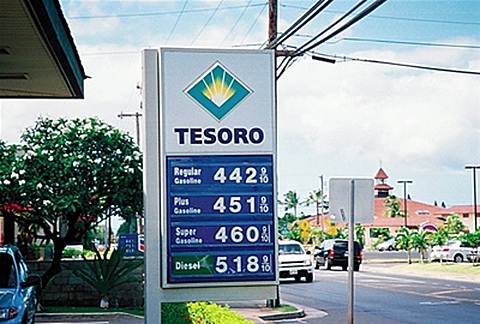|
by UH Professor Tom Blackburn-Rodrigues on 5 June 2008 in Maui News
Fred Duennebier is a professor of Geology and Geophysics at the University of Hawai‘i (UH) at Manoa and he has message. That message is simple and direct. Petroleum will not meet our energy needs for much longer, and when it comes to an end, we could face the end of civilization as we know it.
Pessimistic? Dramatic? Fear mongering? It didn’t seem so to an audience of about 25 people who turned out at Maui Community College (MCC) to hear Dunnebier say that Hawai‘i, the United States and the rest of the world are already in the early stages of a crisis that has been decades in the making.
According to Duennebier, the United States is the most fossil-fuel-dependent (oil) nation on Earth, and Hawai‘i is the most oil-dependent state in the nation. He called Hawai‘i the “canary in the coal mine” when it comes to energy dependence. The phrase refers to the practice of miners who often brought a live canary in a cage into a mine. If the bird died due to gases or bad air, it was time to get out.
Eighty-five percent of Hawai‘i’s food and staples travel to the state on ships that burn oil. Burning oil produces 78 percent of Hawai‘i’s electricity. The Mainland is little better off. Duennebier reported that the average meal in North America travels 1,500 miles before it gets to the dinner plate, and that worldwide, 86 percent of our energy comes from fossil fuels (coal, gas and petroleum).
Ask Duennebier for a solution and he will candidly admit that he doesn’t have one. “I don’t know the answer,” he said. “I want people to be aware that these kinds of things can happen so we get some bright minds thinking about it, instead of these very simplistic kinds of things, like we’ve got to conserve fuel. That’s not going to solve the problem. We have to have people out there who can actually solve the problem.”
What about solar, biomass, photovoltaic, wind, wave action, nuclear, electric cars, hybrid cars, bicycles and walking? All good ideas, according to Duennebier, but none will solve the problem facing the world as oil becomes increasingly expensive and inflated costs move throughout the economy.
Another problem compounding the energy crisis caused by the end of cheap oil is the continuing growth of U.S. and world population levels. Duennebier presented charts that show an increasing upward curve in population growth that corresponds with the era of cheap oil, beginning with exploitation of oil in the Pennsylvania oil fields of the 1800s.
“We can’t sustain this population growth,” said Duennebier. “I can’t think of any volunteer way to curb it and mandatory methods may not be acceptable.”
Another challenge posed by Duennebier at the meeting sponsored by the Maui Peace Foundation, the UH Sea Grant College, and the Maui Community College Sustainability Club was directed at Hawai‘i’s economy. He recalled the recent earthquake that left Maui and O‘ahu without electricity. “What if that had gone on for three weeks?” he asked.
With our electric power linked directly to access to oil, Duennebier pointed out that eventually we would have no food, no water and no money. Stores and banks would close and we could become “energy refugees,” not unlike the victims of Hurricane Katrina, desperately seeking safe haven from the effects of the storm.
Among the more chilling possibilities, according to Duennebier, was his belief that nuclear energy may be the only short-term viable alternative to oil. While not an advocate, he pointed to countries like France, Germany and Japan that continue to make substantial investments in this energy option.
Currently, there are 100 nuclear plants operating in the U.S. Duennebier thinks that it would take up to 400 plants to supply U.S. energy needs. The other choice is geothermal, but environmental constraints and the need for massive-sized plants are prohibitive.
The end of cheap oil is a topic that will resound throughout Maui for some time to come. Increasing prices at the pump, at the market and for electricity stun most residents on a daily basis. Airline fares are increasing and tourist projections are dropping for the balance of 2008 and into 2009.
It’s clear that we can continue to talk about an energy crisis, but oil is not waiting for us to decide what to do. The end of cheap oil is here and it is only becoming increasingly expensive. And one day it will become beyond our reach.
|
